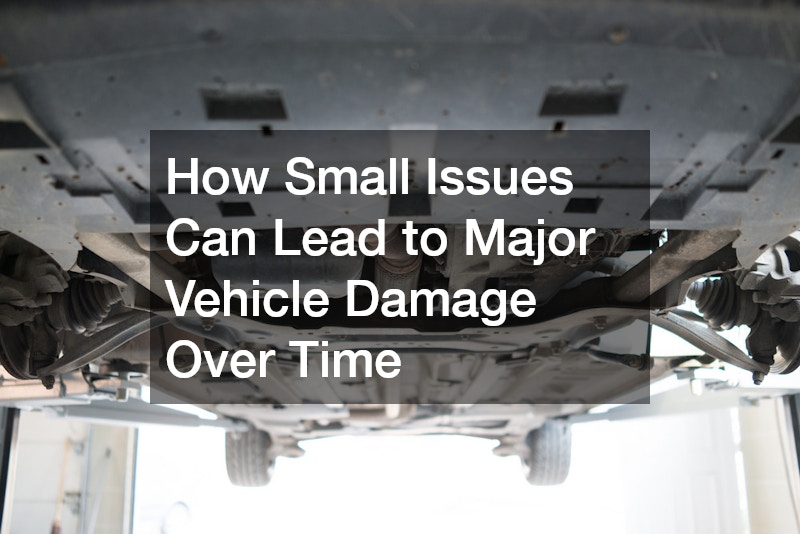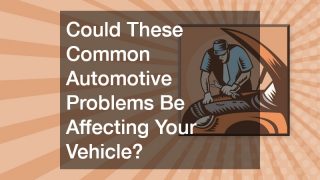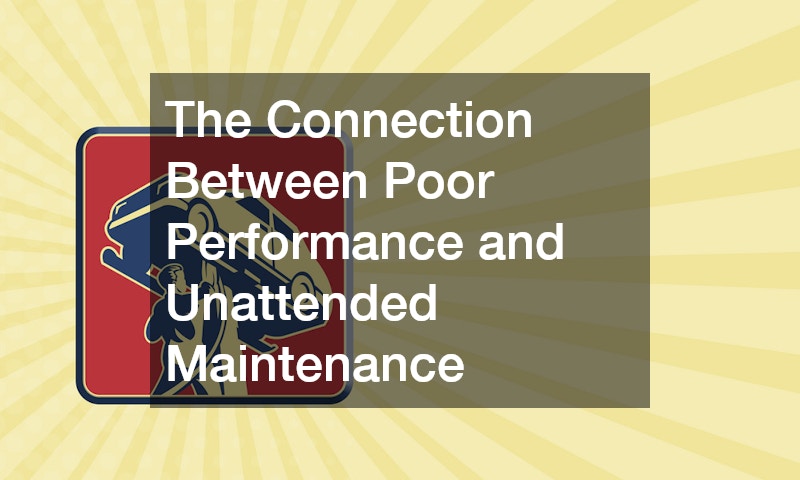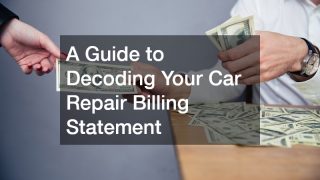
Every car owner, at some point, faces common automotive problems. These issues range from minor inconveniences to major mechanical failures that can compromise the safety and performance of your vehicle. Understanding these common issues can save you time and money in the long run, and ensure a smoother experience with your vehicle.
In this article, we’ll explore a wide range of common automotive problems and offer insights into their causes and solutions. From difficulties starting the car to serious suspension problems, we’ll break down what you need to know to keep your vehicle in optimal condition. This guide will also highlight the services available at an auto body repair shop or used car dealerships that can help address these issues efficiently.
Whether you’re dealing with unexplained vibrations or your vehicle is struggling to perform as expected, it’s essential to identify and address these issues promptly. Regular maintenance and timely repairs are crucial to prevent more significant problems from developing down the line. Let’s delve into these common automotive problems and find out how you can tackle them effectively.
Is Your Car Struggling to Start? Here’s What You Should Know

A car that struggles to start can be a significant inconvenience, leaving you stranded and frustrated. Among the common automotive problems, a faulty battery or corroded terminals is often the primary culprit behind starting issues. Ensuring your battery is charged and regularly checking the terminals can prevent this problem.
Sometimes, the starting problem might not be with the battery but could be due to a faulty starter motor. If your car makes a clicking noise when you turn the key, it’s a telltale sign that your starter motor might need attention. Visiting your local auto body repair shop for a thorough diagnostic can help you pinpoint and resolve the issue efficiently.
In other cases, fuel delivery systems like clogged fuel injectors or a failing fuel pump can also contribute to starting problems. Regular maintenance and occasional fuel system cleaning are recommended to keep your car running smoothly. Such preventive measures can help you avoid unexpected expenses and maintain your vehicle’s performance.
Why Your Vehicle’s Handling Could Be Off and How to Fix It

Poor handling is among the common automotive problems that can affect the overall driving experience. A vehicle that doesn’t respond well to steering inputs or seems to drift might have misaligned wheels. Regular car alignments can correct this problem and enhance your driving safety.
If left unattended, misalignment can further lead to uneven tire wear, shortening the lifespan of your tires. It’s advisable to get your alignment checked at least once a year, or whenever you feel a change in your car’s handling. Used car dealerships can often check alignment as part of their routine maintenance services before selling vehicles.
Handling issues can also be due to worn-out suspension components like shocks and struts. If you notice excessive bouncing, or your car sways more than usual, it might be time to have your suspension inspected. Ensuring that your suspension is in good shape will not only improve handling but also enhance overall ride comfort.
Uncovering the Causes of Unexplained Vibrations in Your Car
Experiencing vibrations while driving is both uncomfortable and indicative of deeper issues. One of the most common automotive problems causing vibrations can be unbalanced or misaligned tires. A new tire service can address balancing issues and eliminate vibrations.
Additionally, warped brake rotors can lead to vibrations, especially noticeable when applying the brakes. Ensuring regular brake repairs and considering an auto brake replacement, if needed, can mitigate these issues. You should consult a professional at an auto body repair shop to assess the state of your brakes.
Sometimes, engine-related problems such as misfires or worn engine mounts can also cause vibrations. Keeping up with regular engine maintenance and addressing warning signs promptly can prevent these issues from escalating. Thorough diagnostics can help ensure your vehicle operates smoothly and vibrations are minimized.
The Connection Between Poor Performance and Unattended Maintenance
Poor car performance often stems from unattended maintenance tasks, which are regularly listed among common automotive problems. Neglecting routine oil changes can lead to engine sludge build-up, impairing engine performance over time. Consistency in maintenance schedules is essential for preserving engine efficiency.
Another potential cause of reduced performance is failing to replace air filters. Clogged filters restrict airflow, leading to an incomplete combustion process, which directly affects power output. Regular filter replacements, combined with routine servicing, are fundamental for maintaining optimal engine health and performance.
Transmission problems can also cause your vehicle to perform sluggishly. Worn or malfunctioning transmission components may require transmission repairs. Timely intervention and repairs can restore your vehicle’s power and performance while preventing more severe issues down the line.
How Small Issues Can Lead to Major Vehicle Damage Over Time

Ignoring small issues might seem harmless, but they can evolve into significant problems, adding to the list of common automotive problems. For instance, a chipped windshield may not obstruct your view initially but can turn into hazardous cracks over time. Consider timely chipped windshield repair to prevent further damage.
Similarly, overlooking minor brake noises can lead to costly repairs if brake pads completely wear out. Regular brake inspections and preemptive auto brake replacement are crucial for vehicle safety. This preventive approach ensures that small, manageable issues do not blossom into larger, expensive repairs.
Additionally, a minor oil leak might seem insignificant but can lead to severe engine damage if left unchecked. Ensuring your vehicle is regularly checked by professionals at an auto body repair shop can help identify and correct small issues before they cause major damage, saving money and ensuring safety.
Why Ignoring Your Car’s Suspension Could Lead to Bigger Problems
Your car’s suspension is integral to comfort and safety, yet it’s often overlooked amid common automotive problems. Worn suspension components can cause handling issues, affect braking distance, and increase tire wear. Routine suspension checks are essential to maintaining the vehicle’s safety and handling characteristics.
If you notice noises when turning or excessive vehicle bounce, these are signs of worn suspension parts. Ignoring these signs can lead to more expensive repairs and potentially hazardous driving conditions over time. Regular maintenance and replacement of worn or damaged suspension components are advised by most auto body repair shops.
Investing in high-quality suspension parts and consulting specialists for professional assessments can help maintain your vehicle’s suspension system. Ongoing maintenance prevents small suspension issues from transforming into significant, expensive disorders that impair your vehicle’s safety and performance.
The Effects of Neglecting Your Vehicle’s Alignment
Wheel alignment issues are common automotive problems that can go unnoticed until significant damage occurs. Misalignment not only affects handling but also leads to increased tire wear and reduced fuel efficiency. Ensuring regular car alignments can address these concerns before they escalate.
Without proper alignment, your vehicle may drift or pull to one side, creating a hazardous driving situation. This imbalance in alignment wears down tires unevenly, requiring replacements more frequently than scheduled. Used car dealerships often perform alignment checks on their vehicles before sale to avoid offering problematic cars.
Getting professional car alignments checks at an auto body repair shop can help diagnose and correct tracking issues. Addressing alignment issues promptly can save on costly tire replacements and significantly improve your vehicle’s safety and handling.
How to Tell If Your Car’s Brakes Need Immediate Attention
Brake systems are crucial for safety, and brake issues rank among the most urgent common automotive problems. Squealing, grinding, or a soft brake pedal are clear indicators that your brakes require urgent inspection. Early action with brake repairs prevents more severe system failures and high repair costs.
A pulling sensation when braking may suggest uneven brake pad wear or a hydraulic issue. Professional brake inspections can identify whether an auto brake replacement is necessary to keep your vehicle’s brake system functioning optimally. Safety should never be compromised, making regular brake checks a non-negotiable aspect of vehicle maintenance.
Ensuring effective brakes by working with a trusted auto body repair shop can also influence your auto insurance premiums, as a well-maintained vehicle is viewed as less risky. Maintaining your braking system guarantees that your car performs reliably in all driving conditions, enhancing safety levels for both you and other road users.
The Hidden Dangers of a Damaged Windshield and What to Do About It
A damaged windshield might not seem critical, yet it presents significant safety risks and is classified under common automotive problems. Cracks or chips can impair visibility and reduce the structural integrity of your vehicle during impacts. Immediate chipped windshield repair is crucial to prevent these hazards.
Comprehensive insurance policies often cover windshield repairs, making it easier to address these problems without large out-of-pocket expenses. Ignoring small chips can result in them spreading, eventually necessitating complete windshield replacement. Addressing issues early protects both the vehicle’s value and occupants’ safety.
By dealing with windshield damage promptly, you maintain adequate clarity and preserve the vehicle’s structural fortitude. A professional assessment and timely repair can prevent the aggravation of this common problem while preserving your peace of mind on the road.
Could Your Tires Be Compromising Your Vehicle’s Safety?
Tires are a critical component of your vehicle’s safety profile, yet issues with them are among the common automotive problems neglected by drivers. Worn or improperly inflated tires can reduce grip and increase stopping distances, posing a significant safety risk. Regular tire maintenance, including proper inflation and rotating, is essential to mitigate these risks.
Inadequate tread depth can lead to hydroplaning and loss of control, making it vital to check tire tread regularly. New tire services can provide suitable replacements, ensuring your vehicle maintains optimal performance. Correct maintenance of tires not only protects you but can also contribute to better fuel efficiency and longer tire lifespan.
Collaborating with knowledgeable professionals at an auto body repair shop can aid in selecting the right tires for your vehicle’s needs. Maintaining proper tire conditions aligns with safety regulations and is a prudent step in ensuring a safe and comfortable driving experience.
What to Do When Your Car Starts Shifting Rough or Sluggishly
Rough or sluggish shifting is a concern that falls under common automotive problems and typically indicates transmission issues. Symptoms like hesitation when shifting or unusual noises mean that transmission repairs are likely necessary. Prompt attention can prevent more severe damage and costly repairs.
Regular servicing of transmission fluid can aid in maintaining smooth gear shifts and prolong the transmission’s lifespan. Engaging local car rental services during the repair period can provide a temporary solution to mobility issues caused by necessary vehicle maintenance. Professional inspection and repair services ensure your vehicle remains reliable and functional.
Remember, ignoring minor shifting problems can result in total transmission failure over time. Partnering with reputable service providers ensures your transmission receives proper care, maintaining your vehicle’s performance and extending its operational life.
How Uneven Tire Wear Could Be a Sign of Bigger Mechanical Issues
Uneven tire wear is more than an inconvenience; it is one of the common automotive problems that indicates deeper mechanical issues. Poor suspension alignment, worn out parts, or faulty brakes can contribute to irregular tire wear patterns. Addressing the root cause is key to preventing further complications and unnecessary new tire service expenses.
Inspecting tire wear regularly can provide insights into potential mechanical failures. Professional assessments can identify whether the problems lie with suspension adjustments or necessitate more comprehensive repairs. Ensuring alignment and suspension integrity can prevent the early demise of your tires.
Routine maintenance checks with skilled professionals ensure your vehicle’s components function harmoniously, promoting even tire wear. This proactive approach not only extends tire longevity but also improves overall vehicle safety and performance.
What You Need to Know About Engine Warning Lights and Their Implications
Engine warning lights are an immediate indication that your vehicle requires attention and are frequently included among common automotive problems. Ignoring these alerts can lead to extensive and expensive damage. Understanding each warning light’s meaning and urgency is vital for maintaining vehicle health.
Common warnings include check engine lights, which might indicate issues ranging from a loose gas cap to major engine problems. Seeking prompt diagnostics from an auto body repair shop can determine the underlying issue and allow for timely interventions. Delay in addressing warning lights may result in severe failures that compromise your vehicle’s functionality.
Regular engine maintenance not only prevents problems but ensures early detection when warning lights illuminate. By paying attention to these indicators and acting swiftly, you ensure your vehicle’s efficiency and prolong its lifespan.
Addressing common automotive problems promptly is critical to ensuring your vehicle remains in optimal condition. By understanding and tackling issues like poor handling, faulty brakes, and engine warnings, you can maintain your vehicle’s safety, performance, and value. Remember, preventative maintenance is always more cost-effective than reactive repairs.
Whether you’re exploring options at used car dealerships or seeking professional repairs, staying informed and proactive about vehicle health pays dividends. Professional services such as those offered by auto body repair shops and local car rental options can provide the necessary support for faultless vehicle operation. Regular check-ups and addressing minor issues promptly before they escalate into larger problems is the most effective strategy for vehicle care.
By following the guidelines and solutions offered in this comprehensive guide, you’ll be better equipped to handle the common automotive problems your vehicle might face. This will ensure a safer, more reliable, and enjoyable driving experience for you and your passengers.




